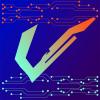AI tools in music
Hi. I have a question regarding AI usage.
Say for example I use it to generate a chord progression and then I recreate it from scratch in my software with some tweaks and build more upon it. How is such music going to be classified? What kind of license is it going to be? Will I have to declare that the AI was used to generate that progression?


This is a great and important question I would like some clarity on as well. Image-Line's FL Studio added a feature this year called "Generated Chord Progression" which is applicable.
I do find it somewhat frustrating with the boundaries becoming somewhat blurred and wthat I experienced recently with these companies adding A.I. freatures to VST plugins although I have never really seen, noticed or used said features.
Tsorthan Grove
Hobbyist Musician
Hi, I want to share what I've learnt about A.I. and copyright in this regards with the hope it would be of any use:
- A.I. art of any type can not be copyrighted.
- The only way to copyright content generated with A.I. as CC0 or any creative commons license would be by making sure that the model used was trained with CC0 or content or any compatible license.
- It is impossible to prove the source of any generated A.I. content, you can never know how any derivated content has been achieved or which model was used and how it was trained.
In my opinion, if the new chord that you generated does not exist and is not copyrighted, it should be fine to use , but I'm afraid I have none to say about what is permited in OGA and I'm also not a lawyer so this is not by any means advice.
To me a chord that does not belong to any copyrighted song is a new chord and it doesn't matter if it came out of your mind of an A.I. and who will be able to know how you did it?
I guess you know the story of the A.I. generated art that won a price in colorado (more info in wikipedia: https://en.wikipedia.org/wiki/Th%C3%A9%C3%A2tre_D%27op%C3%A9ra_Spatial), it is relevant I think because the person who won the prize and generated the art tried to copyright the art and this was what happened:
"the Copyright Office Review Board made a final determination and found that Théâtre D'Opéra Spatial was not eligible for copyright protection as the human creative input was de minimis, with the AI-generated elements dominating."
So according to what happened in that case, if the A.I. does not "dominate" the work you are doing it should not be considered A.I. generated, otherwise yes.
To add my own opinion on this, I would say a chord progression is not enough "content" by itself to be a copyrighted work. As glitchart stated, AI output cannot be copyrighted. However, because of the nature of how AI's are trained, their output may still infringe upon the copyright of others. That being said, a single chord progression is probably not enough to infringe anything. It's like trying to copyright a color palette. An elaborate painting that was created using those colors may be subject to copyright, but not the colors themselves. I guess it depends on how elaborate this chord progression is.
Complexity aside, how are you "recreat[ing] it from scratch"? If it is truly being created from scratch, did you need the AI output at all? I would argue the AI output is being used in some way to produce your own version, not truly created from scratch. However, the way it is being used may simply be as inspiration. If you are listening to the AI-produced chord progression, and using that to inspire you to create (even a similar) chord progression of your own, that is inspiration. If you are memorizing the notes and reproducing the exact same notes in a new set of chords, that ... may still technically count as "copying" and therefore a derivative of AI output. Just as it would still be considered copying if you closely studied a copyrighted work of pixel art, then created a replica of it pixel-by-pixel from eidetic memory.
It's ok to be inspired by an existing work that leads to you creating a new work, even if the new work has some similarities to the original. The line that separates inspiration from derivation is, unfortunately, fuzzy and- sometimes- moving.
--Medicine StormThanks for the answers everybody!
I guess it's going to be much easier to not get involved with any AI tools :)
It really depends on the AI tool you're using and its terms. Some allow you to use the output commercially without restrictions (like OpenAI tools), while others might have limitations, so it's worth checking their licensing details.
If you're tweaking the chord progression and building on it, it sounds more like you're using the AI for inspiration rather than directly copying it. In that case, the final piece would usually be considered your own original work. You typically don’t need to declare AI usage unless it’s a requirement for a specific project, like a competition or commission.
Removed
Nobody can register chord progressions since in occidental musical conventions (Songs with 4-16 chords), the combinations are very limited and some grades like I, IV, V, or the Doo Woop grades, Milongas etc. etc. are PUBLIC DOMAIN!!!!!!!!!!!!!!!!!!!!!!!!!!!